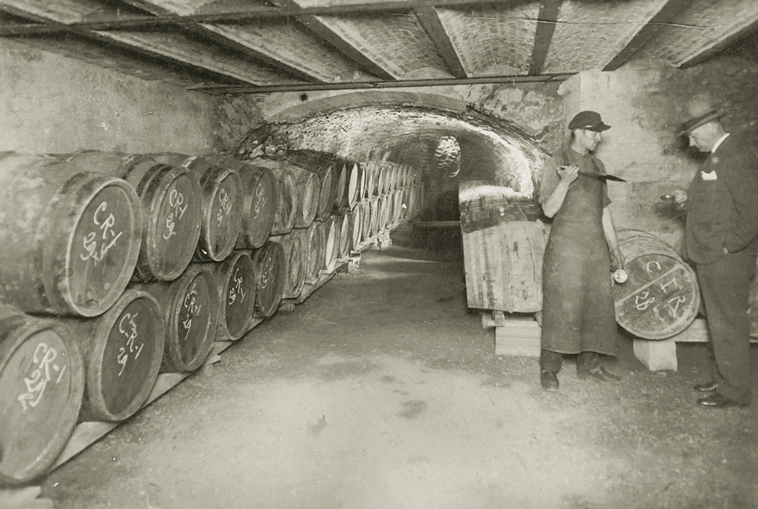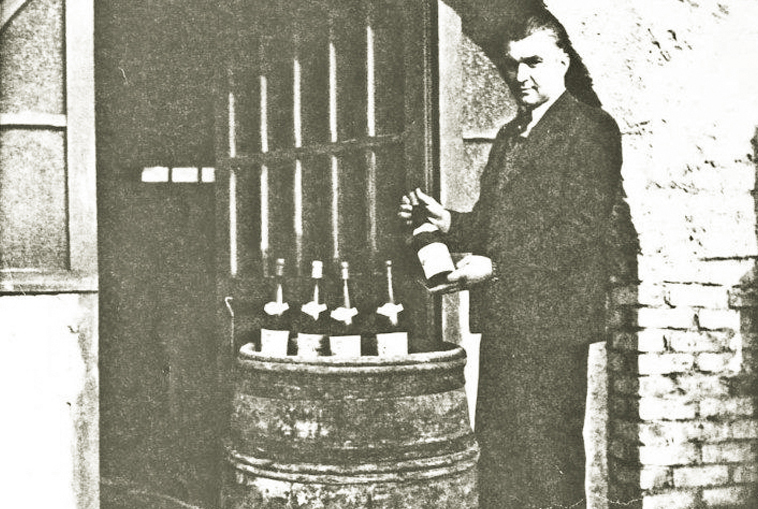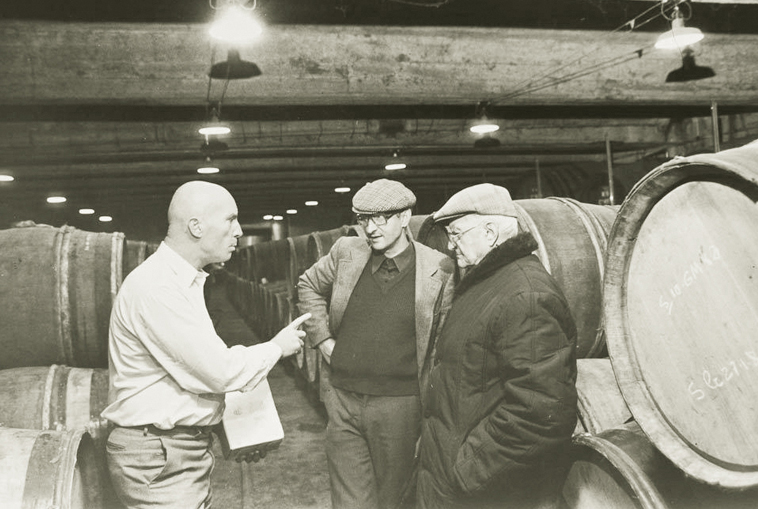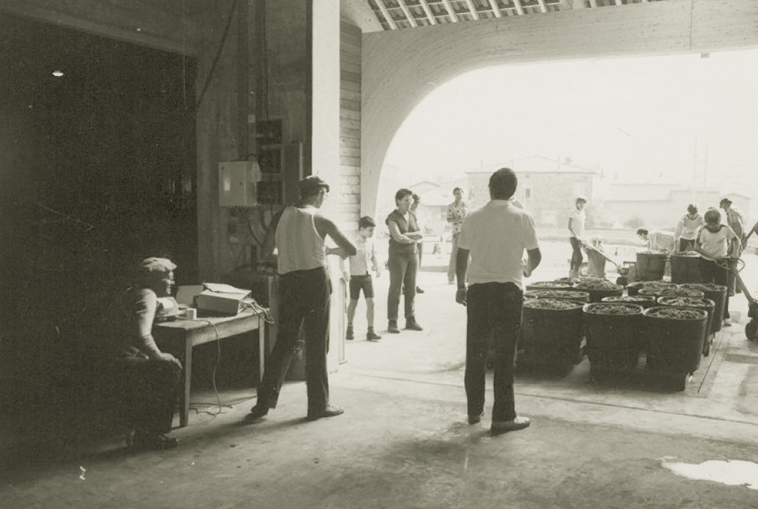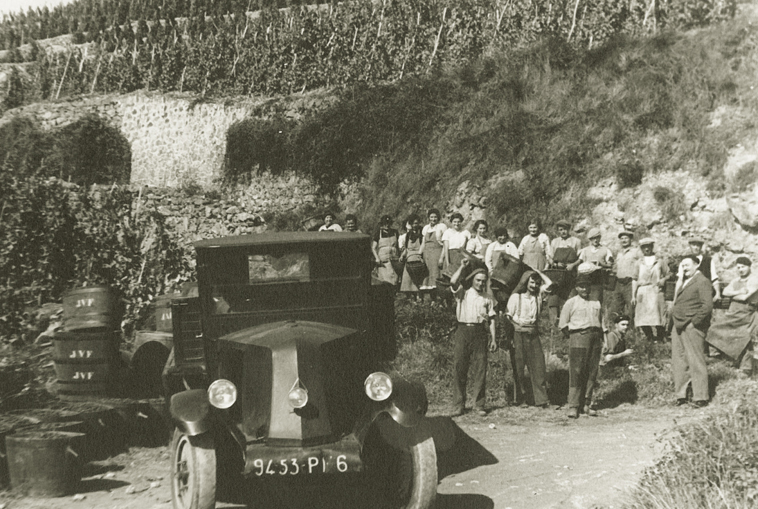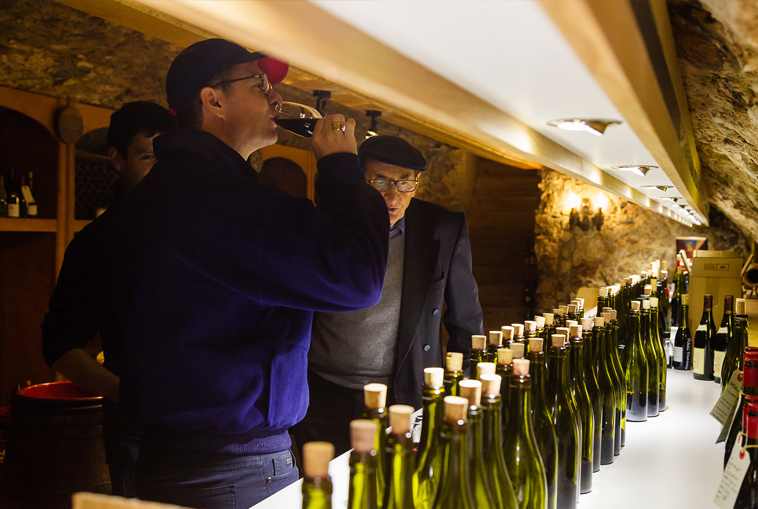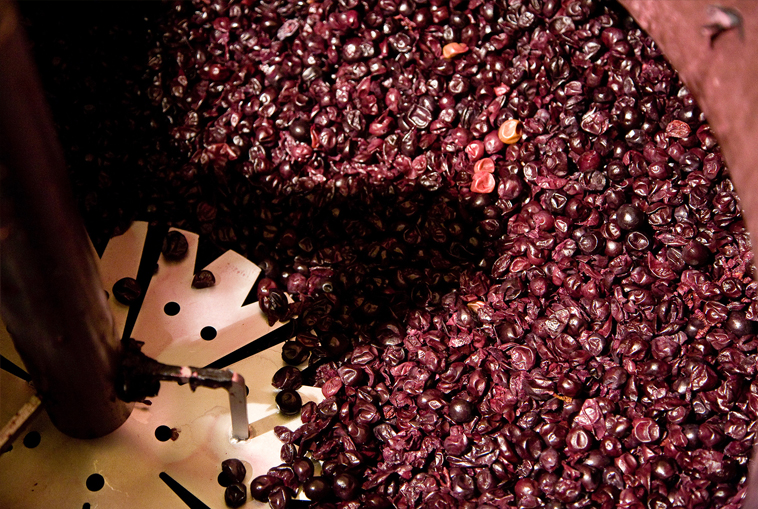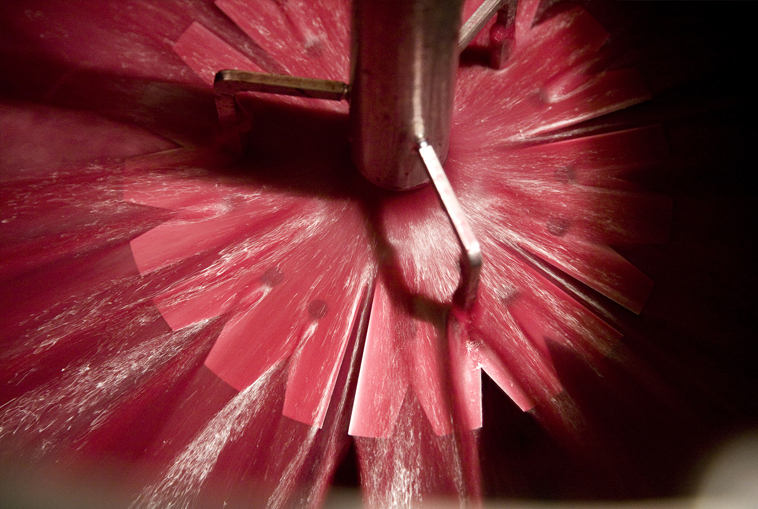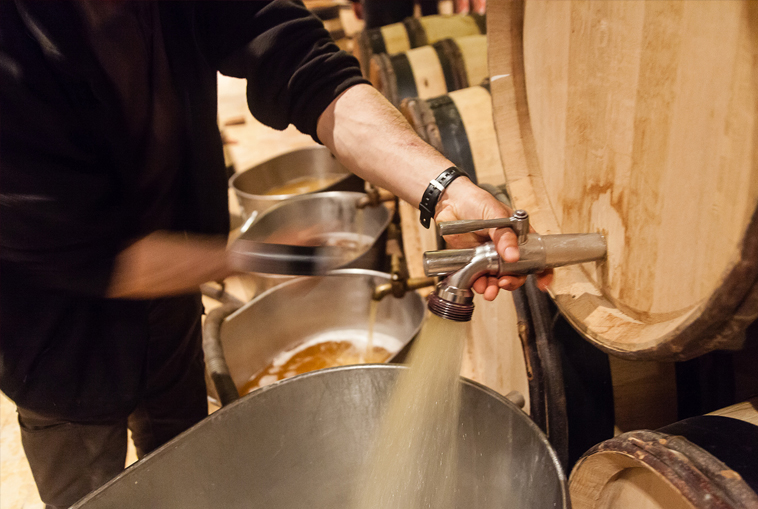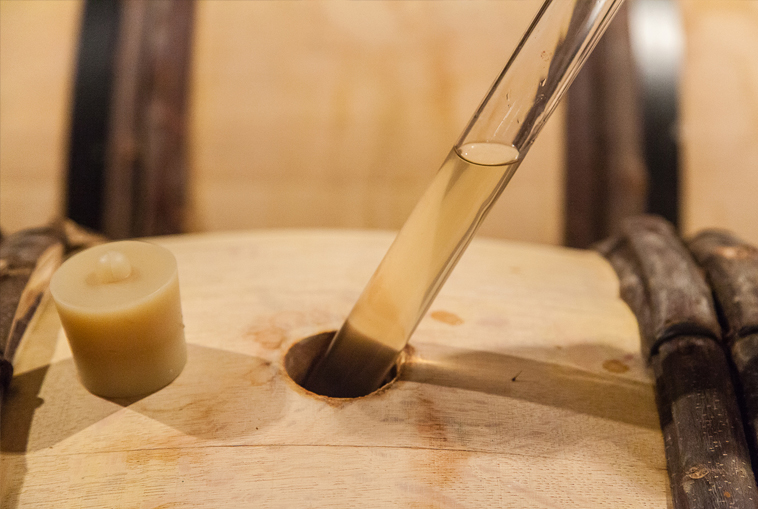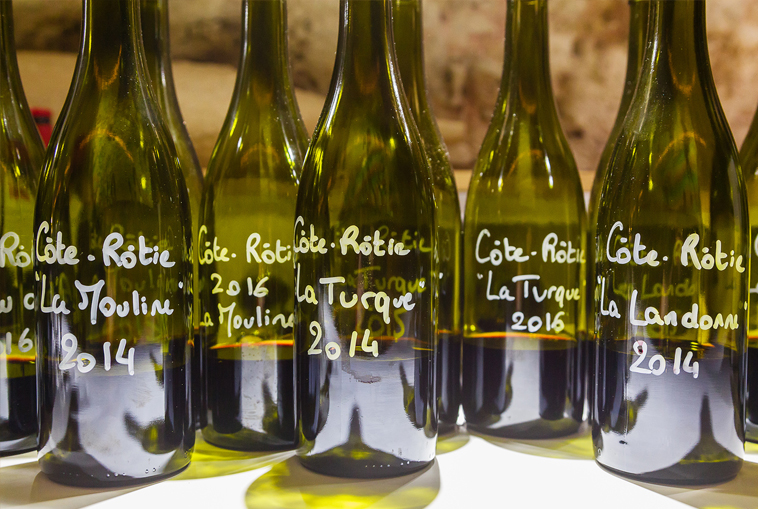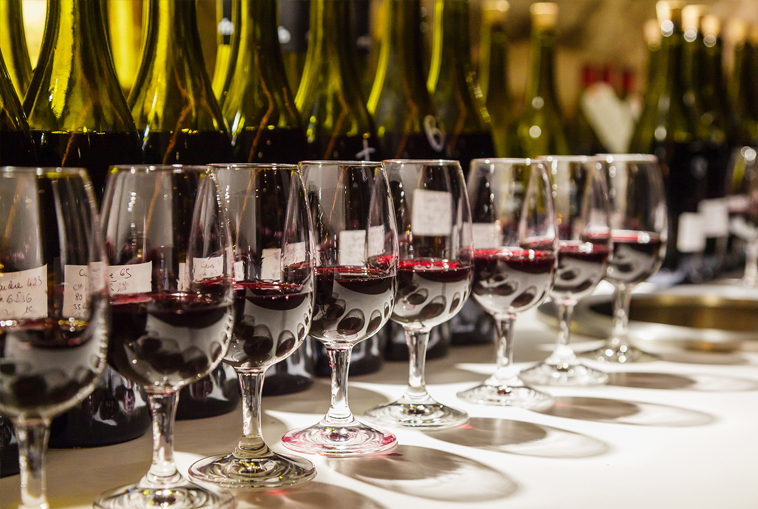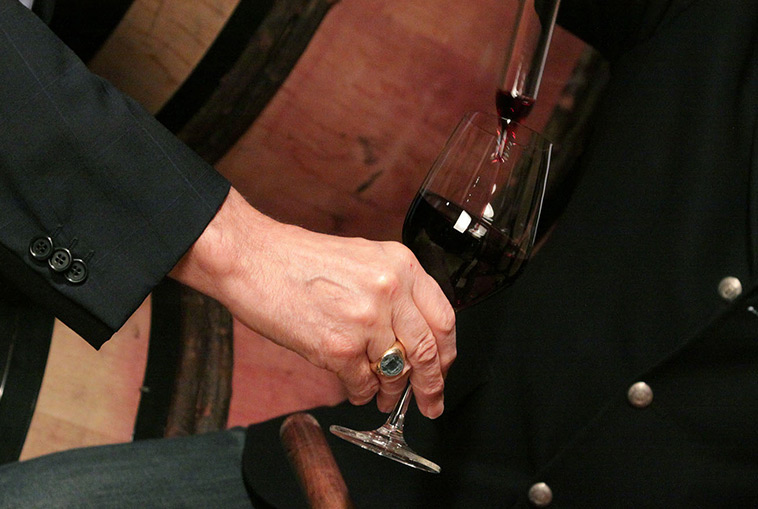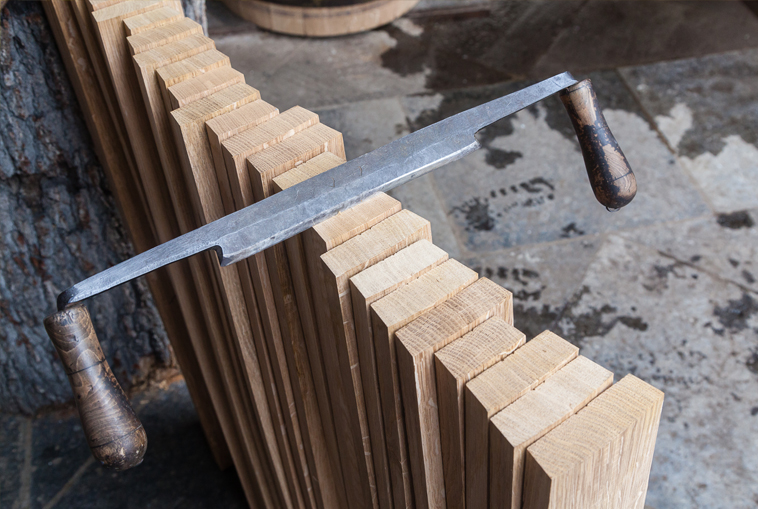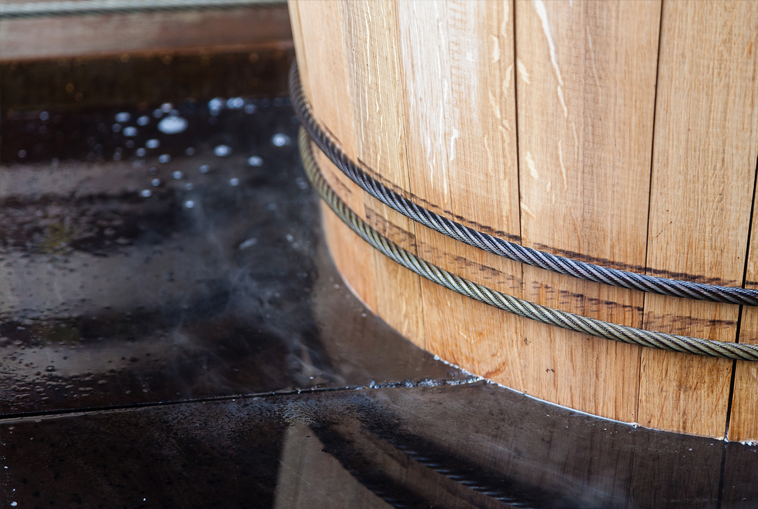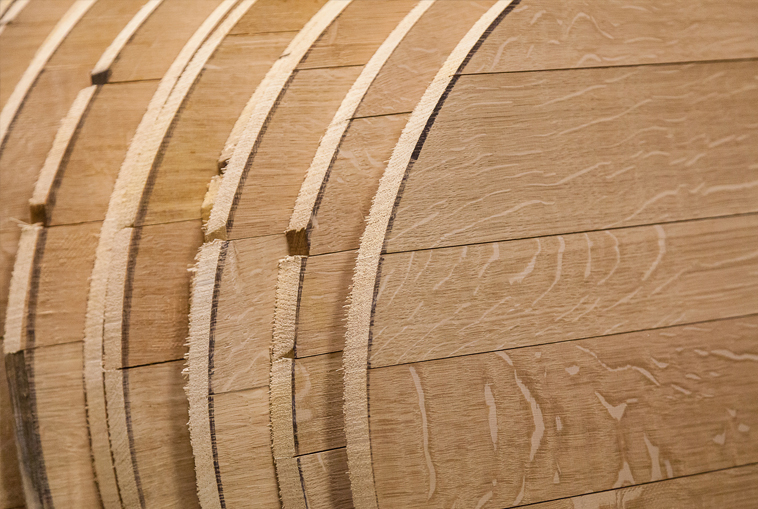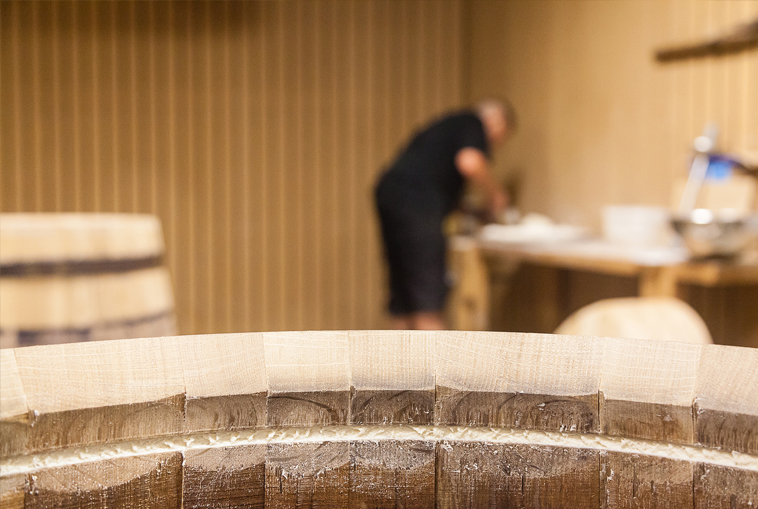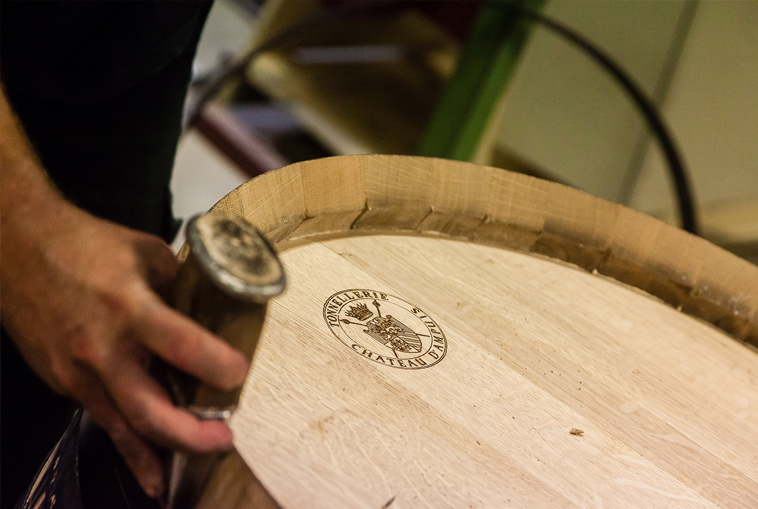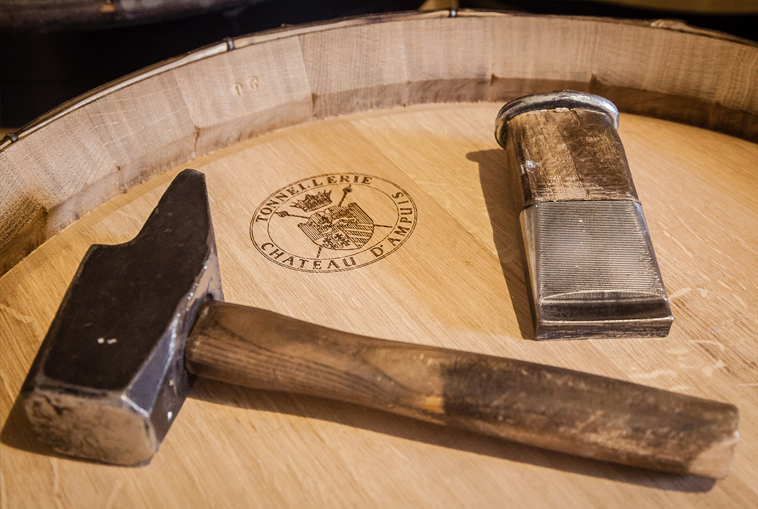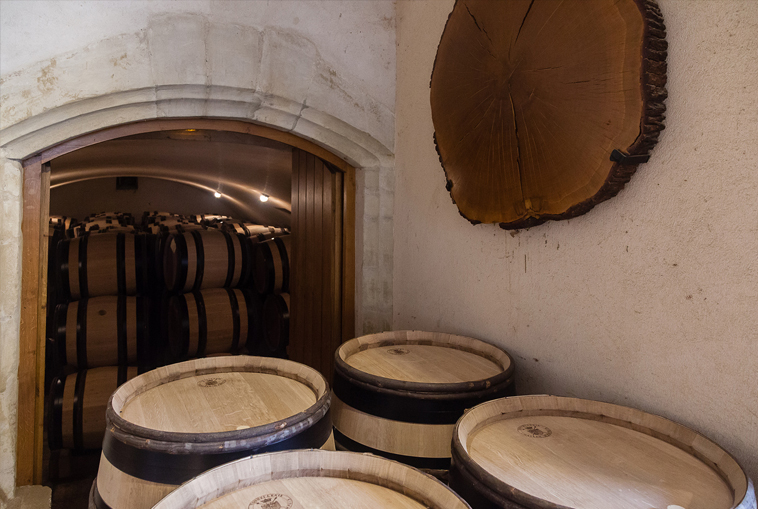
Estate
The Guigal Estate was founded in 1946 by Etienne Guigal in Ampuis, a small ancient village and the cradle of the Côte-Rôtie appellation. It houses a unique vineyard where vine and wine have been celebrated for 2400 years. Arriving in 1924 at the age of 14, the founder vinified 67 harvests in Côte-Rôtie and participated early in his career in the development of the Vidal-Fleury Establishments.
In 1961, although very young, Marcel Guigal took over the direction of the estate alongside his father, who had been suddenly struck blind. In 1973, he was joined by his wife Bernadette, and together they worked towards the growth of the family business. Their son Philippe was born in 1975 and is now the winemaker of the estate. Alongside his wife Eve, they represent the third generation and continue the family's work in service of the great wines of the Rhône Valley
Since 1946, hard work and perseverance have borne fruit, evidenced by milestones such as the acquisition of the Vidal-Fleury Establishments in the early 1980s. They continue to maintain complete commercial autonomy and their own identity.
In 2001, the Guigal Estate was further enhanced by acquiring the former Jean-Louis Grippat Estate and the Domaine de Vallouit, solidifying its position within the Côte-Rôtie appellation, as well as in Hermitage, Saint-Joseph, and Crozes-Hermitage
Since the summer of 2003, Maison Guigal, determined to continually enhance its knowledge of wine and its surroundings, embarked on a new venture: Cooperage. This artisanal work ensures an additional technical mastery in the crafting of its wines.
In March 2006, the Guigal family acquired the Domaine de Bonserine and supported its development, which remains independent from that of Domaine Guigal. This beautiful property, located in Ampuis, is endowed with prestigious parcels spread across the Côte-Rôtie and Condrieu appellations.
The acquisition of Château de Nalys in Châteauneuf-du-Pape in July 2017 marks an important milestone in the family's history, as they were previously only present in the northern Rhône. This move establishes their presence in the southern Rhône Valley. Initially spanning 53 hectares, the estate was expanded with the acquisition of Domaine Mercier in 2019 and Domaine des Clefs d’Or in 2020, bringing the total area dedicated exclusively to the Châteauneuf-du-Pape appellation to 75 hectares.
In January 2020, Le Caveau du Château opened its doors. This oenotourism facility, dedicated to wine and heritage enthusiasts, houses a museum devoted to the work of vineyards, wine, and cooperage. It features numerous ancient objects from the Guigal Family's collection.
In May 2022, Château d’Aqueria joined the family saga. This jewel of the Tavel and Lirac appellations, covering nearly 100 hectares, retains complete autonomy and benefits from the expertise of the Rhône Valley family and their supportive guidance.
Since its origins, the motto 'Nul Bien sans Peine' (No Gain Without Pain) increasingly reflects the promise made to Etienne Guigal: to work together in his footsteps, to bear witness to, and to transmit the passion for the great appellations of the Rhône Valley. Marcel and then Philippe, both accompanied by their wives, are now the guardians of this house that embodies history, dedication, and sharing
Vinification, transmission from generation to generation
Vinification requires the perfect mastery of skills honed by our ancestors to produce top-quality wine. Each stage of the process demands extreme care and attention to detail at all times. This is where the quintessence of a great wine is split between artisanal techniques and the modern tools of vinification. This duality brings out the complexity of the grape variety’s character and the specific characteristics of the terroirs from which they come.
Ageing quality wines in the Rhône Valley
Cloaked in silence and the cool darkness of the cellars, the still barrels nurture their precious contents year after year. This calm is deceptive, however, as nowhere else is such intense activity at play. Here, the oak is king; alone it is in charge of the subtle exchange which allows the wine to evolve and improve slowly and consistently under the watchful eye of the winemaker. Again, alone it enhances the raw material produced from the fruit and the terroir with delicate nuances of oak, vanilla and noble tannins. Without overpowering, it reveals the authenticity of the wine with a profound respect for its balance, its origins and the vintage. Each day, the wine becomes more refined, more expressive and bolder in the barrel. It lies patiently in wait for the perfect moment when it will be bottled.
Producing exceptional wines
The wines of the Maison Guigal are crafted in the family’s tasting room that lies in the very heart of the historic cellars of the domain. A daily ritual is performed in the calm of this sanctuary as father and son work on their precious blends. Aromas, structure, flavours - each nuance is studied. Hence the reason why long months of tasting are required to achieve excellence and evoke intense and authentic emotion. Through this natural alchemy, the balance and consistent quality of the wines of this great Rhône estate are ensured vintage after vintage.
« The artisanal cooperage of the domain »
Since the summer of 2003, the GUIGAL family, determined to constantly enhance their knowledge of wine and its close environment, has embarked on a wonderful adventure: the Cooperage
"Building on this collaboration of over twenty years, the cooper crafts, assembles, and toasts the traditional barrels destined for the aging of the estate's fine wines. These artisanal and ancestral techniques provide an additional level of technical mastery. The estate's wines are thus aged in tall, fine-grained oak barrels sourced from the greatest forests of France.
Approximately 800 new barrels are crafted to meet the annual demand of the estate, which ages all of its northern gems in new barrels. These traditional practices confer a unique status upon Maison Guigal, with some of its fine wines being aged for nearly 3.5 years before being bottled.
Video


